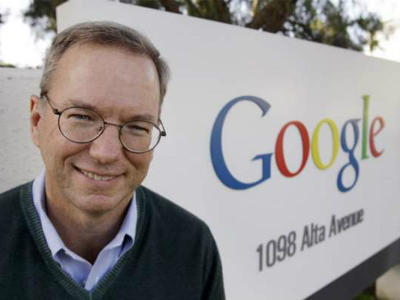Google Glass Still a Year Away for Consumers
So much for that $1500 spy tool for Christmas. Shucks.
During a 13-minute radio interview on Monday, Google Executive Chairman Eric Schmidt said that Google Glass won't go on sale until "approximately one year's time". That shoots down all talk that had the AR specs launching by the end of the year, or even in 1Q14. But Google looks to be taking more time to fine-tune Glass based on feedback from the Explorer crowd, and perhaps could be even waiting for component prices to drop so the final price point is more reasonable.
"The developers are beginning now," he said when asked when Glass will hit the market. "It will be fair to say that there will be thousands of these in use by developers over the next few months. And then based on their feedback, we'll make some product changes, and it's probably a year-ish away."
That's definitely a cold shower for consumers who planned to sink $1500 into the wearable tech by the holiday season. But he also pointed out the impact Glass will likely make given that it has a built-in camera. Society will need to develop a new "social etiquette", he said, to address privacy concerns. This may be why Glass has been delayed as well: to slowly introduce the technology over the next year through the Explorer program and developers testing the hardware.
"It's obviously not appropriate to wear these glasses in situations where recording is not correct," he said. "And indeed, you have this problem already with phones. Companies like Google have a very important responsibility to keep your information safe, but you have a responsibility as well, which is to understand what you're doing, how you're doing it, and behave appropriately and also keep everything up-to-date."
His talk about Google Glass began just over four minutes into the interview. He said that Google just started distributing the specs to the first developers.
"At the moment what you do is wear it – it's on your upper right-hand right above your eye," he described. "And look up, and you can see what looks to you like a computer screen. And on that computer screen you can for example do photographs, you can do movies, and this thing has a camera as well. To me the most interesting thing is the fact that you talk to it. So you say, 'Google Glass', and you ask it a question. And it answers, and then you look."
There are a tremendous numbers of applications that can take advantage of this technology, he said, including Augmented Reality. "You see what's going on in real time, and then we annotate that. We say 'that's this building' or 'this is something you already done' and those sorts of things," he added.
Get Tom's Hardware's best news and in-depth reviews, straight to your inbox.
Once the conversation about Google Glass and privacy wrapped up, the show quickly began talking about Google's problems with Street View including the fines Google faced in the United States and the current investigation in Europe. He acknowledged these issues, but said they were actions of a single individual and were not authorized by the executives.
To listen to the entire radio interview, head here.

Kevin Parrish has over a decade of experience as a writer, editor, and product tester. His work focused on computer hardware, networking equipment, smartphones, tablets, gaming consoles, and other internet-connected devices. His work has appeared in Tom's Hardware, Tom's Guide, Maximum PC, Digital Trends, Android Authority, How-To Geek, Lifewire, and others.
-
joecole1572 I wonder how well they will be able to keep the public interested in the product for another year. People might move on to the next big thing by then.Reply -
halcyon Reply
Sorry, those of us with less than 20/20 who don't wear contacts need not apply.10713963 said:Please tell me, how do you wear Google Glass on top of your regular glasses? mmm... -
aeurix It might be a year before they launch, but a full 3-6 years before you can walk around major cities and get a full readout of information like most people are interested in.. and forget small towns. When I can walk down Younge street in Toronto and Google Glasses project the Yelp/Urbanspoon/foodcritic ratings when you look at restaurants, I'll buy a pair..Reply -
g00fysmiley I'm excited abotu this tech i know it is not going to be full on augmented reality but it will be neat. Then again I also so not wear glasses and thanks to lasik still have 20/20 vision 10 years after getting it done. it will be neat to play with and i am hopign users get to help enter data and have a hand in molding the tech as it maturesReply -
beachbod Will youtube allow you to filter out glass videos. Because I see a lot of crappy choppy youtube videos in the future.Reply -
tenchinage How about having to talk out loud to issues commands ?Reply
How more socially intrusive could it be ?
